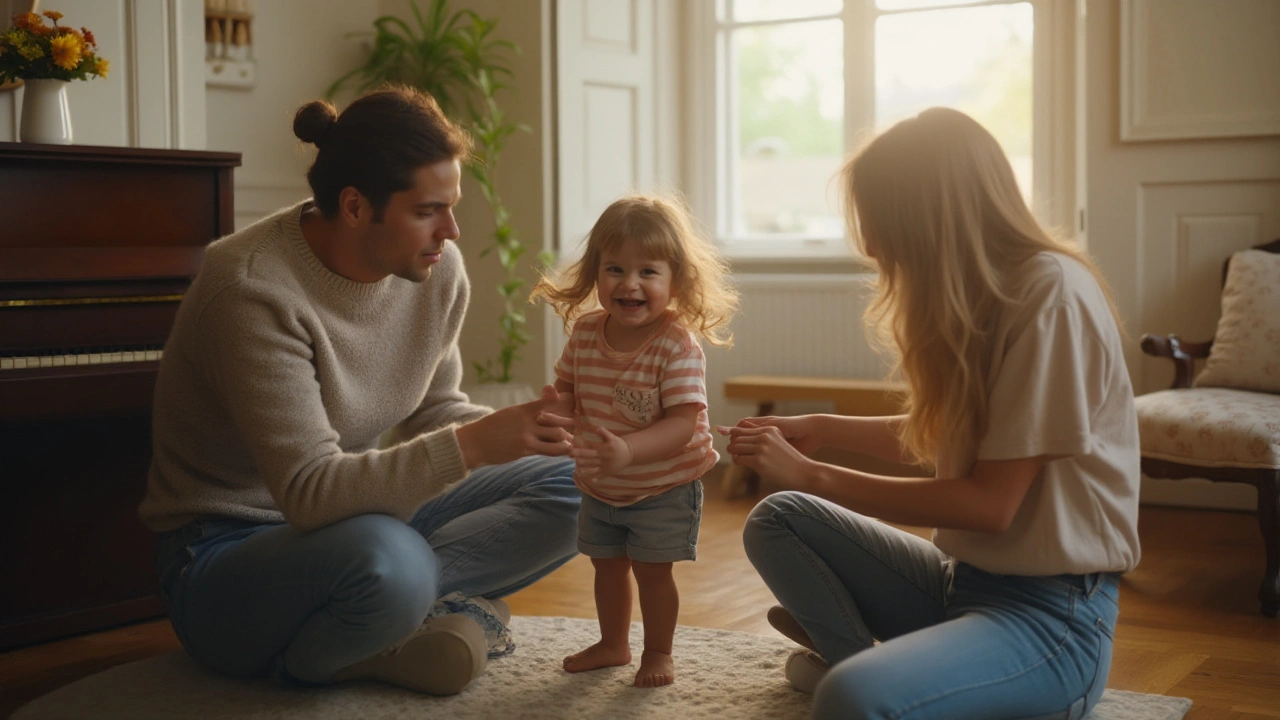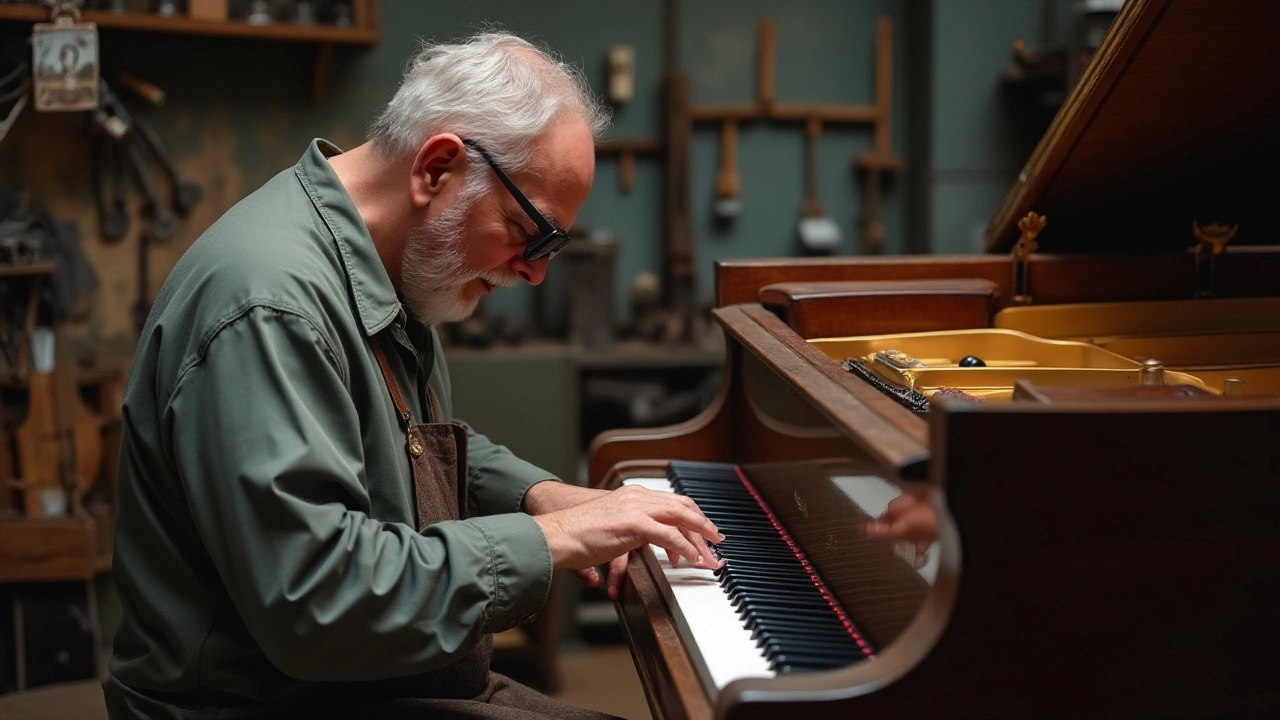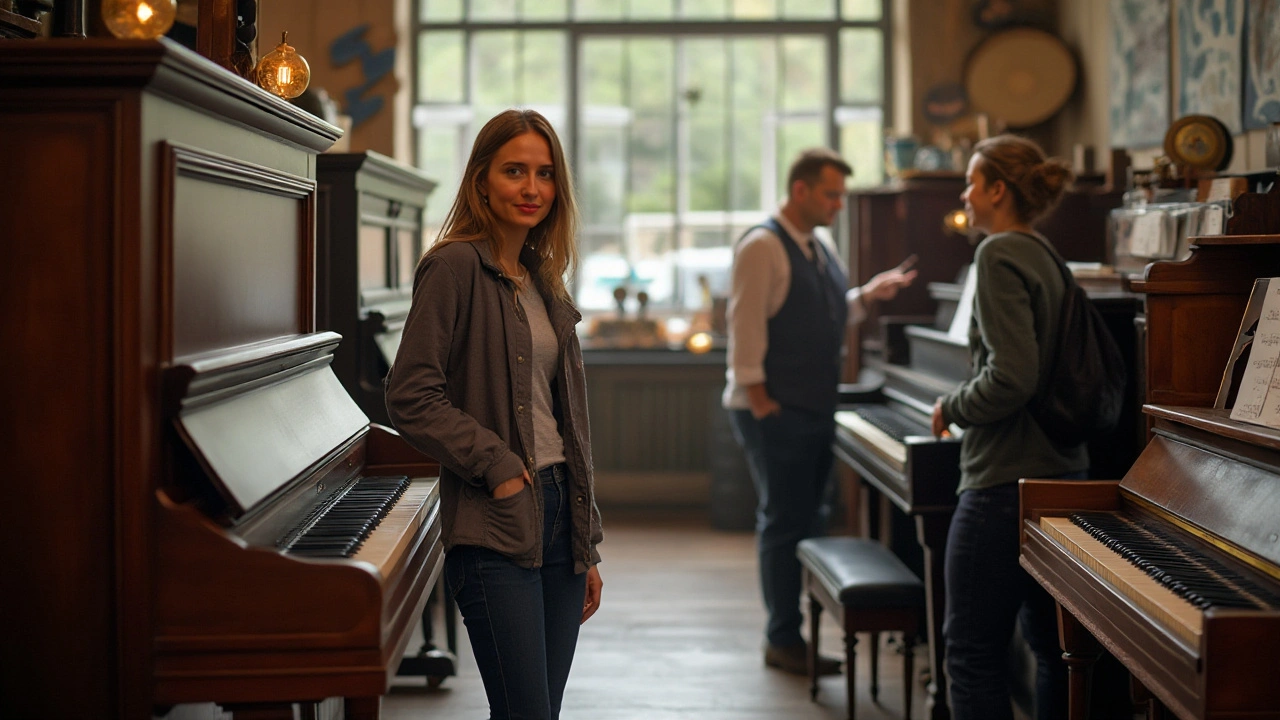Getting your first piano is a thrilling venture, where music lovers become creators. Whether you're picking it up for a child or indulging in your own musical pursuits, finding the right piano can be an enriching experience. Delight in the process as you explore the numerous options, each with its own quirks and charms.
It's important to start by understanding the different kinds of pianos, which broadly fall under acoustic and digital categories. Your choice is often influenced by your space, budget, and future goals. Navigate this landscape with ease by learning the ins and outs of what each type offers.
Budgeting is also crucial, as prices can dramatically vary based on models and features. Equip yourself with knowledge about what really matters and invest wisely both in the short and long term.
Once your piano arrives, knowing how to care for it ensures it remains in great condition. Regular maintenance and a little old-fashioned TLC will keep those keys singing sweetly for years. Enjoy this remarkable journey and let music become a cherished part of your daily life.
- Types of Pianos: Acoustic vs Digital
- Budgeting for Your First Piano
- Key Features and Considerations
- Maintenance Tips for Longevity
Types of Pianos: Acoustic vs Digital
Choosing between an acoustic and a digital piano is one of the first major decisions you'll make on your musical journey. Each type offers distinct features that cater to different preferences and lifestyles. Acoustic pianos, known for their rich, resonating sound and timeless craftsmanship, are favored by traditionalists and concert musicians alike. They produce sound through felt-covered hammers striking steel strings, offering a dynamic range that can capture the subtlest of expressions. The tactile feel of an acoustic piano is irreplaceable for many players, who revel in its ability to convey emotion with depth and nuance.
However, the heft and maintenance requirements of acoustic pianos are considerations to keep in mind. They demand significant space and periodic tuning to retain their optimal sound quality. Perched at the other end of the spectrum, digital pianos have evolved remarkably over the past decades. These modern instruments replicate the sound and feel of their acoustic counterparts, often at a fraction of the size and cost. Digital pianos offer practicality with features like headphone jacks for silent practice, varied instrument sounds, and connectivity to music software for recording. They are typically lightweight and do not need tuning, making them ideal for students and those with limited space or a moderate budget.
The decision between these two largely hinges on your intended use and personal preferences. According to a report by the Music Trades magazine, 60% of first-time buyers lean towards digital pianos due to their affordability and versatility. Still, acoustic pianos are deeply coveted for those seeking authenticity in tone and performance quality. As famed pianist Lang Lang once said, "The piano is an orchestra in itself," capturing the versatility of the instrument in both forms. For those who crave technological convenience, digital pianos integrate seamlessly into the modern music world. In contrast, if you are drawn to vintage charm and are committed to its upkeep, an acoustic piano could be your perfect match.
"The sound of the piano is capable of quickly conjuring memories, sensations, and emotions." - Lang Lang
Evaluating your goals, available space, and budget will significantly inform your decision. Both types have much to offer and cater to various needs—from beginner practice to professional performances. Here are a few points to keep in mind when deciding:
- Determine whether you prefer the authentic sound and feel of acoustic vibrations or the versatility of digital features.
- Consider the space available in your home or studio and whether it can accommodate a large acoustic piece or requires the compact nature of a digital piano.
- Reflect on your long-term musical aspirations and how each type aligns with those goals.
Whether you choose an acoustic piano to embrace traditional roots or opt for digital for its adaptability, the journey promises to enrich your life with music's harmonious delight. Whether strings or speakers, the adventure lies in the symphony each unique key creates.

Budgeting for Your First Piano
Stepping into the world of pianos is not just a journey into music but also a significant financial decision. When budgeting for your first piano, it's vital to consider not merely the price tag but the long-term value of your investment. First-time buyers should understand that pianos come with a wide price range, from the more affordable digital models to the luxurious grands that can mark a lifetime of musical exploration. The key is to balance your passion with pragmatism: evaluate how much you're willing to spend today against the potential joy and learning it could bring over the years.
Understanding the Price Range
Digital pianos often present a more accessible entry point, with prices ranging from as low as $200 to upwards of $5,000, depending on brand and features. They can appeal to beginners due to their versatility and built-in learning tools. Acoustic pianos, on the other hand, start at around $3,000 for an upright and can skyrocket to $100,000 for premium grand pianos. Each tier within these categories offers its own charm; hence understanding your preference, whether it's the authentic acoustics of a traditional model or the modern conveniences of digital, is crucial.
"The piano keys are black and white but they sound like a million colors in your mind." – Maria Cristina Mena
Next, consider the additional costs beyond the initial purchase. This includes tuning, which acoustics demand annually to maintain their rich sound, potentially costing between $100 to $200 each time. Digital models require less maintenance but might need software updates or electrical repairs over time. Despite these possible extras, a well-maintained piano can last decades, making its cost spread thin over the years of harmony it provides.
Preowned vs. New Pianos
Delving into the preowned market can unveil opportunities to own higher-end instruments at a fraction of their new price. This is where discretion and diligence come into play. Enlisting a knowledgeable friend or hiring a professional to inspect the piano can avert potential pitfalls, ensuring you're acing both sound and build quality. New pianos come with the assurance of warranties and the latest features, which is advantageous if technology or resale value is a significant concern for you. Weigh these factors carefully against your budget and aspirations when choosing.
Financing and Payment Plans
For many, the prospect of buying a piano outright might seem daunting, but many retailers offer attractive financing options. It's worth inquiring about payment plans that allow you to spread the cost over several months or years. This way, you don't have to rush your search for the perfect piano. Take your time, explore various brands, models and types, and, most importantly, let the piano speak to you. For those who wish to start with a modest investment, the option to trade up later is often available, allowing you to evolve your choice parallel to your skills and commitment.
Whether you dip your toes in the digital pool or make a bold leap into acoustics, remember to pay due diligence towards your budget. A well-chosen piano is not just a cost—it's an investment into unseen symphonies of your future, waiting to be composed.

Key Features and Considerations
The process of selecting your first piano is filled with excitement, but it also involves considering numerous aspects that will affect your experience and progression as a pianist. When diving into the world of pianos, the first major feature to consider is whether to choose an acoustic or a digital piano. Acoustic pianos, known for their authentic sound and rich tonal quality, are often the preferred choice for many music enthusiasts. These traditionally come in grand or upright models, each offering unique benefits in terms of sound projection and spatial fit.
Another important aspect to watch out for is the piano action, which refers to the responsiveness and feel of the keys and hammers. For a beginner, ensuring the action suits your touch sensitivity is crucial as it influences the expressiveness of your performance. Many choose weighted keys on a digital piano to closely simulate the feel of an acoustic piano's action.
"A good action can make or break the practicing pianist's journey," says renowned pianist and educator Dr. John Smith. "It is where technique and musicality converge, providing a pathway for emotional expression."
Alongside piano action, one must ponder the sound quality and amplification in the case of a digital piano. High-quality samples and speakers that produce a natural, vibrant sound are essential. It is worth mentioning that advanced digital models often feature connectivity options for headphones, making them a practical choice for those living in shared spaces or practicing during odd hours.
What's more, you should also consider the durability and build quality of the piano. Wood finishes, key coverings, and even the construction of pedals can determine the instrument's longevity and the level of care needed to maintain it. Digital pianos, for example, generally require less maintenance but do pay attention to the software updates and technical support available over the years.
While it can be tempting to make a quick decision based on appearance or price, exploring these key features thoroughly will guide you in selecting a piano that resonates with your learning style and fits harmoniously into your lifestyle. Comprehensive research and hands-on experience are your best allies in finding the perfect piano that will nurture your budding musical journey. Remember, choosing a piano is also an investment in your musical growth and personal fulfillment, so take the time to savor every moment of this delightful process.

Maintenance Tips for Longevity
Taking care of your piano is not just about preserving an instrument, but nurturing your love for music. Proper maintenance ensures the piano stays in optimal condition, retains its value, and delivers the best sound possible. One crucial aspect of piano care is consistent tuning. Experts recommend tuning an acoustic piano at least twice a year. This counters the effects of humidity and climate changes, which can cause the wood to expand or contract, affecting the tension in the strings and thus the pitch. Have a professional technician check it regularly to maintain that sweet melody.
Cleanliness plays a pivotal role in piano maintenance. Dust and grime can accumulate and affect the action of the keys. For daily cleaning, a soft, dry microfiber cloth is your best friend for gently wiping down keys. If keys become sticky or discolored, a lightly moistened cloth with warm water and mild soap can do wonders, followed by a dry wipe. Be cautious with cleaning solutions, as the harsh ones can damage the finish. Inside the piano, leave the dusting to professionals to avoid disrupting delicate components.
The piano's location within your home impacts both its sound and longevity. Avoid placing it near windows or doors where direct sunlight and drafts can cause rapid temperature and humidity changes. An inside wall, away from heaters and air conditioners, is ideal. According to renowned piano brand Steinway & Sons, maintaining a constant environment of around 42% humidity helps pianos stay in tune longer and prevents damage to the wood.
"A piano's upkeep is like tending to a garden, where careful attention yields the most beautiful blooms." - Dr. Christopher Cayari, Music Education Specialist.
Keeping the piano covered when not in use protects it from dust and spills. Specialized covers are available for both the keyboard and entire instrument. This simple measure extends the piano's lifespan, preserving its appearance and inner workings. Also, remember to routinely review pedal alignment and action. If you notice any mechanical sluggishness or unexpected noise, seek professional adjustment. Such upkeep, though seemingly small, echoes in the piano's performance and your playing satisfaction. Dedication to ongoing care of your first piano ensures it remains a cornerstone of your musical journey for years to come.



